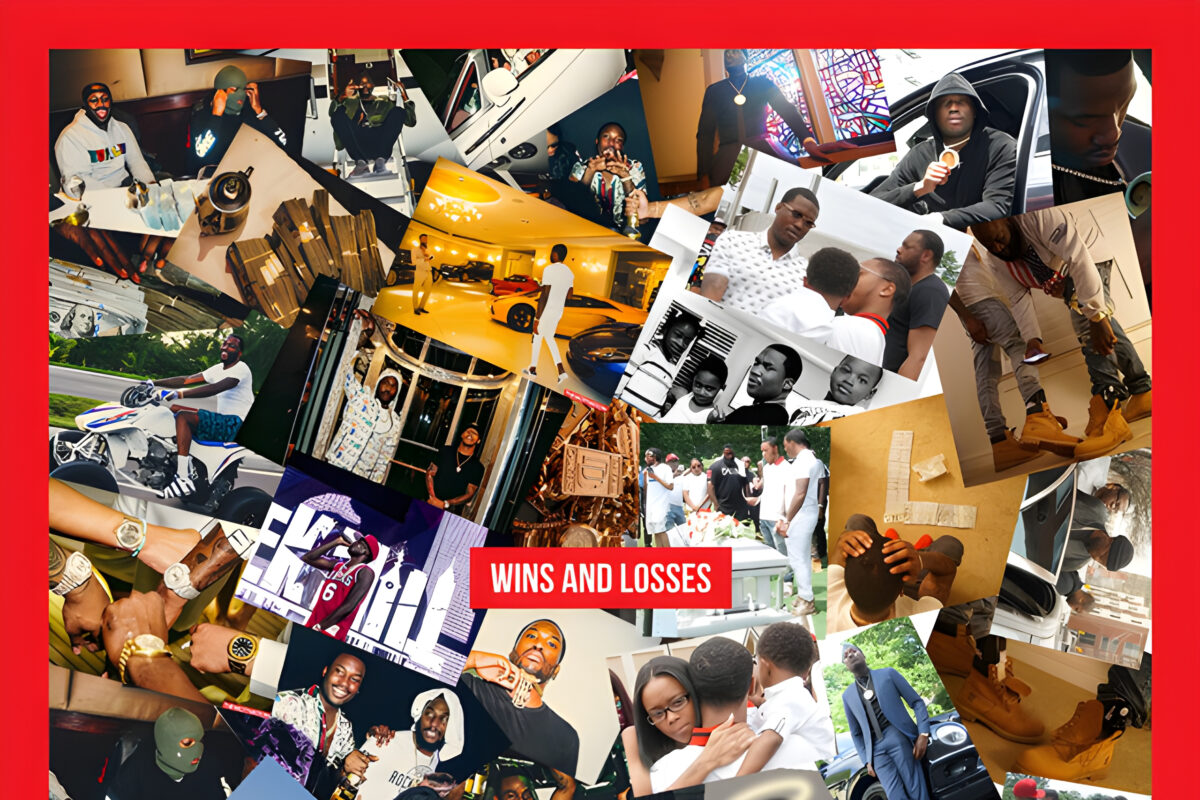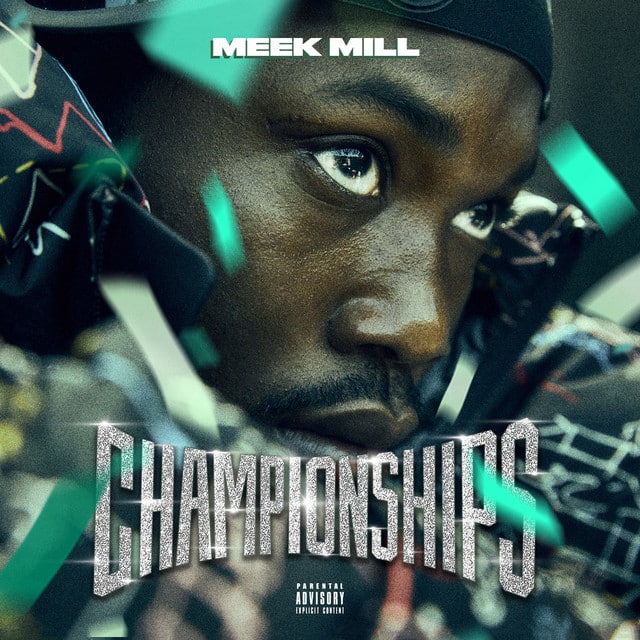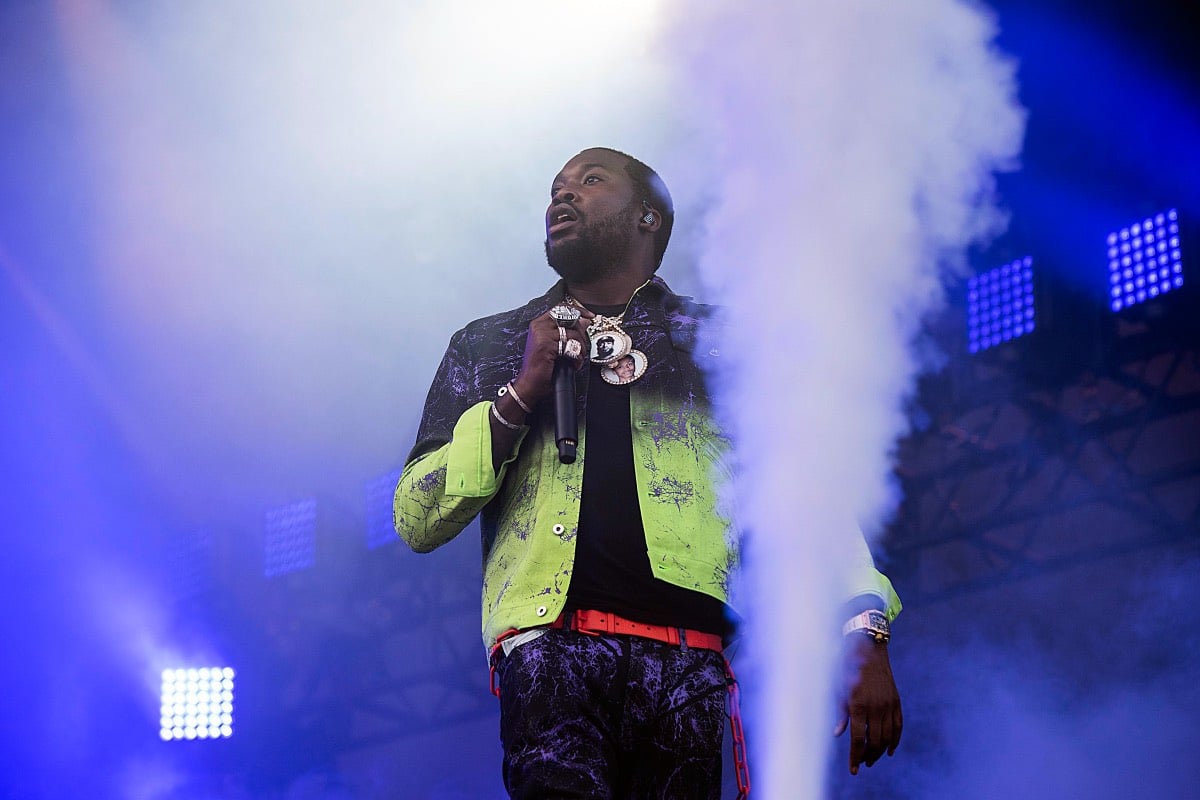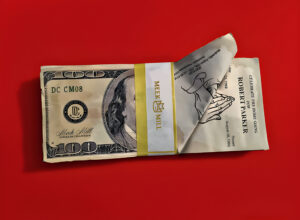Released: 2017
“Connect the Dots” is a gritty and boastful anthem by Meek Mill featuring Yo Gotti and Rick Ross, underscoring themes of street life, power, and success. The song presents an unapologetic exploration of the trappings of the drug trade, wealth, and survival in a competitive and dangerous environment. It’s a bold testament to the artist’s prowess, solidified connections, and refusal to be undermined.
The song kicks off with a chant that sets the tone, “Yeah, gang, Chasers, Chasers, Chasers, Chasers, gang.” This repetition isn’t just for effect but emphasizes the tight-knit nature of Meek Mill’s circle. In hip-hop, “gang” signifies unity, strength, and a shared goal, often used to create a sense of solidarity among collaborators and their followers.
Meek Mill opens with a vivid portrayal of violence and loyalty, referring to a “brand new Glock .40” and stressing that his team is equipped and ready for any challenge. “Ladder” in the context of a gun refers to an extended magazine, allowing for more bullets. By stating “32 deep,” he means that the weapon holds a high capacity of ammunition, further cementing their readiness.

He highlights betrayal and snitching, with harsh words for anyone who turns on their friends: “You done told on your homie, you a pussy.” This is a nod to the code of silence revered in street culture, where loyalty is paramount, and betrayal can have deadly consequences. The imagery of the “kitchen with the Pyrex” suggests drug cooking, implying a level of street acumen and resourcefulness.
The narrative unfolds with lines like “bending through that Bentley truck,” where the Bentley signifies opulence and status. The mention of buying a “Patek” for someone’s “baby mama” not only shows financial power but also highlights how such acts can lead to envy and conflict. This is not just about luxury but also the dangers of the high life where jealousy runs rampant.
Yo Gotti’s section dives into deeper reflections of influence, likening the aspirations of many to iconic figures: “You looked up to Jordan, we looked up to Meech.” Here, Demetrius “Big Meech” Flenory is referenced, a notorious figure in drug trade lore, thus further associating themselves with an underworld prestige and narrative of wealth building against all odds.
The verse, “real bosses put their dawgs on the payroll,” is a key concept where Yo Gotti underscores a theme of leadership and empowerment, suggesting that true success involves lifting others up rather than leaving them behind. This taps into the essence of camaraderie and economic power among trusted associates, essential in the harsh environments they narrate.
Rick Ross brings his unique blend of flamboyance and wisdom to the track, with references to wealth, “quarter milly on the diamond chain,” signifying enormous success and self-made glory. “Milly Rockin’ in the kitchen” portrays the relentless hustle necessary to reach such heights, mixing cultural touchpoints like dance moves with the hustle culture of the streets.
There’s a continuous narrative of connection and economic transactions, metaphorically captured in the phrase “Connect the dots.” It’s about the linkage between individuals, opportunities, and deals that construct their empire. “Link with the connect and we collect them blocks” suggests that building networks is crucial for success, echoing the critical importance of strong alliances.
Ultimately, “Connect the Dots” is more than a mere bragging track. It’s a raw exposition of power dynamics, loyalty, and the journey from humble beginnings to grandeur. Through bold, unapologetic storytelling, Meek Mill, Yo Gotti, and Rick Ross illustrate the paradoxes of street life—glamour and grit, loyalty and betrayal, all intertwined in a constant hustle for survival and success.








